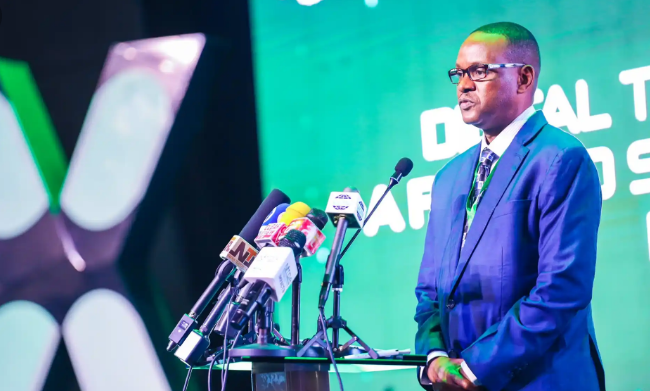Ousman Bah, the minister of communications and the digital economy of the Gambia, has praised Nigeria’s efforts in regulating the telecom industry.
The country’s telecom growth has become a benchmark because of Nigeria’s enormous strides in telecom regulation, according to Ousman Bah, the Gambian Minister of Communications and Digital Economy, who spoke at a weekend event in Abuja.
Gambia to pursue the same successful strategy.
The visit was motivated by the success Nigeria has seen in the sector, according to Bah, who led a Gambian delegation that included industry regulators on a courtesy visit to the management of the Nigerian Communications Commission (NCC) in Abuja. He added that The Gambia must follow Nigeria’s lead to success.
He said that because of this, the West African country had finalized plans to set up an independent regulating body for its telecommunications sector, similar to the NCC of Nigeria.
Read also: Nigeria suspends the new 5% value-added telecom tax
According to the Minister of Communications and the Digital Economy for the Gambia, Ousman Bah:
“The current industry statistics are proof that Nigeria is achieving her goals of digitisation of its economy.”
In order to enhance all sectors throughout the African continent and to drive economic growth and efficiency improvements in both nations, he requested the Commission’s strategic partnership and advising help.
In welcoming the team on behalf of Prof. Umar Danbatta, Executive Vice Chairman of NCC, Director of Legal and Regulatory Services Josephine Amuwa emphasized the significance of the Nigerian Communications Act (NCA) 2003.
According to her, the NCA 2003 gives the Commission the authority to efficiently carry out its regulatory duty, including developing an environment that fosters competition among industry operators and offering reliable and effective telecommunications services across the nation.
Amuwa discussed the Commission’s responsibility for seeing that the Universal Service Provision Fund (USPFgoal )’s is fulfilled, which has resulted in the execution of several programs for the benefit of Nigerians.
According to Josephine Amuwa, Director of Legal and Regulatory Services, NCC:
“The USPF was also established by the NCA 2003 to ensure that services are extended to the rural communities to ensure that telecoms services are available in unserved and underserved areas, even in the urban areas, to meet government objectives.”
Amuwa listed the cooperative and consultative method of telecom regulation as another element contributing to the Commission’s accomplishments.
“The Commission adopts a participatory rule-making process where key players in the industry are invited to a public hearing for further deliberations to ensure that the stakeholders’ views are considered in establishing these regulatory guidelines.’’
Amuwa urged the group to visit the Commission’s website and review all relevant published regulatory rules. She clarified that the guidelines fully implement the requirements and administration of the NCA 2003.
The Nigerian Telecommunication Sector
For more than 20 years, the Nigerian economy’s most active sector has been the country’s telecoms industry. It generates a lot of news. New technology, milestones, and vistas make the news one day, but regulatory constraints, various taxes levied by the government and its agents, or service interruptions caused by the same make the news the next. It is indeed an exhilarating journey.
Nigeria had a population of 216,575,538 people as of July 20, 2022, with a median age of only 18.1 years. The nation’s telecommunications industry is always active, frequently too enthusiastic, and occasionally unstable. The industry has had significant growth recently, and according to official projections, it will continue to expand through at least 2025 while staying within healthy bounds.
Nevertheless, the industry had demonstrated resilience long before resilience was a thing. The athletes made significant investments to get to where they are now, faced and overcame several challenges, and kept pushing themselves to do new, interesting things. It takes an effort to stay current with global developments.
The sector is growing as a result of the nation’s extremely youthful and rapidly growing urban population, as well as the rising use of cell phones, services, and applications. The use of IoT (internet of things) devices that link with wired and wireless broadband is also beneficial to the industry. Some 2G networks in Nigeria have already been completely shut down in recent years, and all 3G platforms are expected to be discontinued by the end of 2025. A majority of Nigerian mobile connections will be 5G by 2029, according to the Federal Ministry of Communications and Digital Economy.
It is obvious that the telecommunications revolution promoted universal access to broadband internet services and their associated advantages, permitted the expansion of e-commerce, and sped up the formation of the digital economy. This is in addition to their direct economic contributions, which include paying taxes, creating jobs, and maintaining a large number of MSMEs.
While some analysts credit government regulations and policies for spurring the sector’s expansion throughout the years, others contend that the government and its agents are the largest barriers to the industry’s development.
